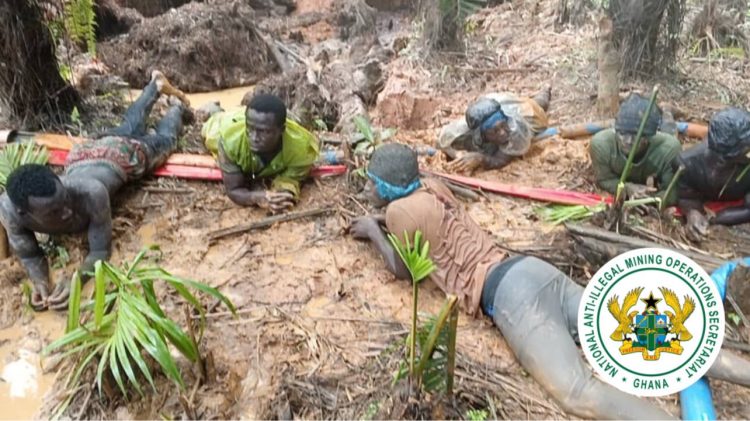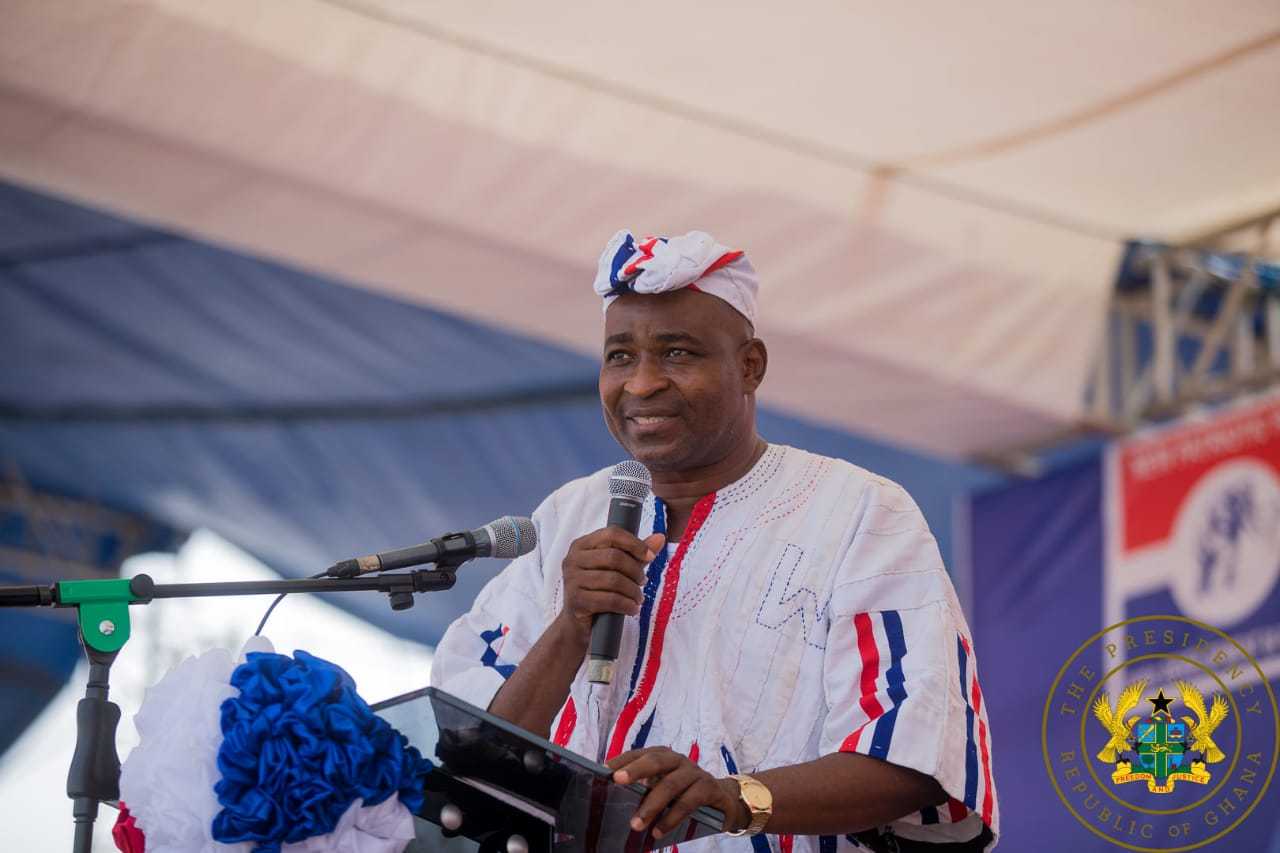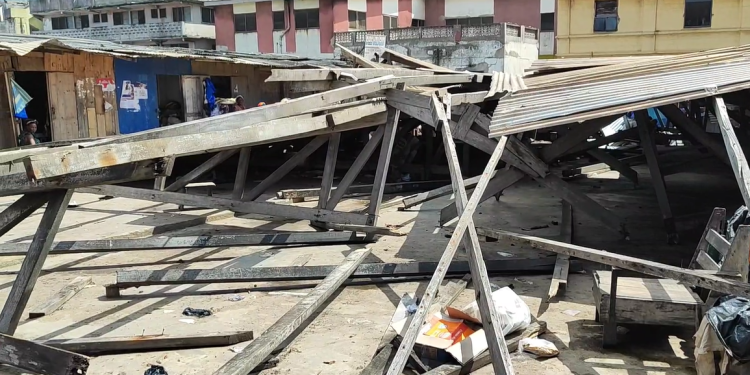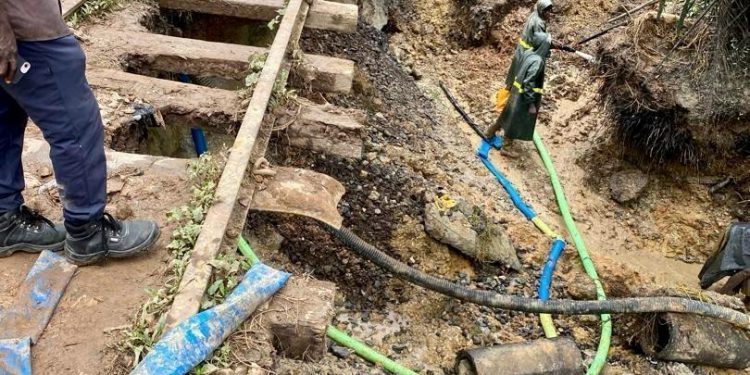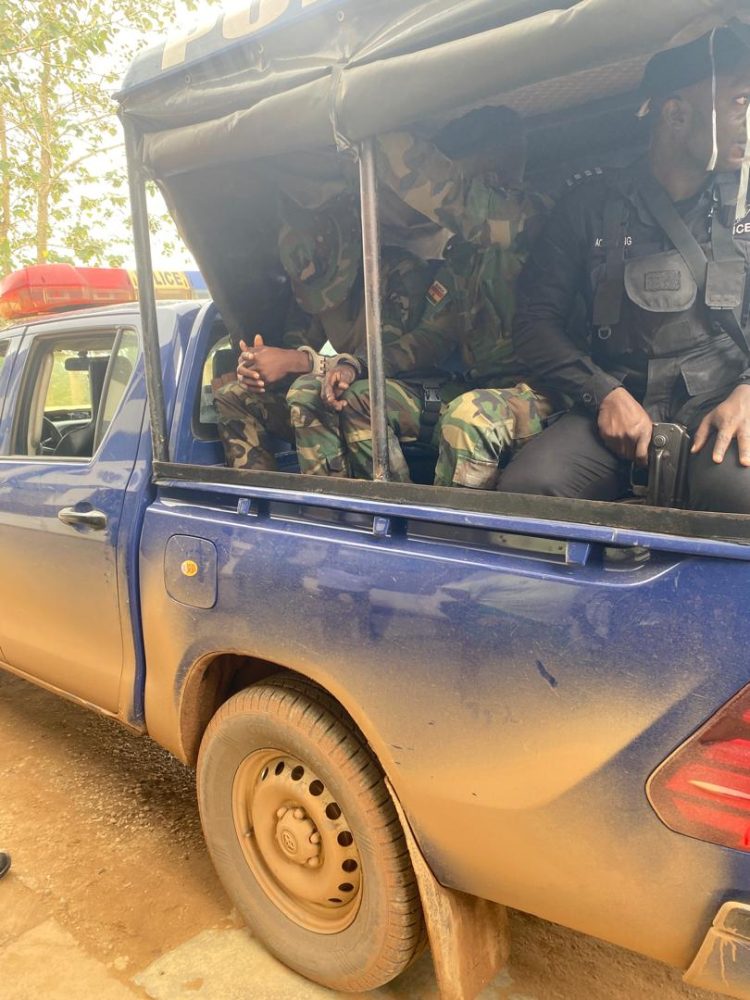A government-led task force has intensified its crackdown on illegal mining in the Western Region, leading to the surrender of hundreds of miners and the seizure of narcotics and equipment, according to officials.
The National Anti-Illegal Mining Operations Secretariat (NAIMOS), the agency spearheading the initiative, carried out sweeping raids this week across several mining communities. The operation targeted unregulated “galamsey” sites—small-scale mining operations often linked to environmental degradation and criminal activity.
In a post on social media platform X, Minister of State for Government Communications Felix Kwakye Ofosu praised the task force’s actions as a “decisive step” toward protecting the country’s natural resources and curbing the adverse social impacts associated with illegal mining.
The raids resulted in the surrender of several hundred individuals, many of whom were involved not only in illegal mining but also in activities such as drug use, illicit trade, and gambling. Authorities reported the confiscation of 11 parcels of Indian hemp and other controlled substances.
NAIMOS said it destroyed multiple makeshift structures used as drug dens and operational bases, along with mining equipment including 15 water pumps, a generator, and three “chanfangs”—improvised gold processing machines commonly used in galamsey operations.
The latest operation follows a June 2025 directive by NAIMOS warning illegal miners and associated gangs to vacate the area. That warning, officials say, was largely ignored.
Additional raids were conducted in the Dadwen-Domping corridor of the Tarkwa Nsuaem Municipality, where authorities seized equipment and dismantled illegal mining infrastructure.
Ghana’s illegal mining sector has long posed challenges to environmental protection efforts, with polluted rivers and degraded forests threatening agriculture and public health. The government has faced growing pressure to demonstrate progress in restoring affected lands and deterring illegal operations.
NAIMOS has pledged to sustain enforcement actions in the region as part of a broader national campaign aimed at restoring ecological balance and reducing the influence of criminal networks linked to galamsey.



